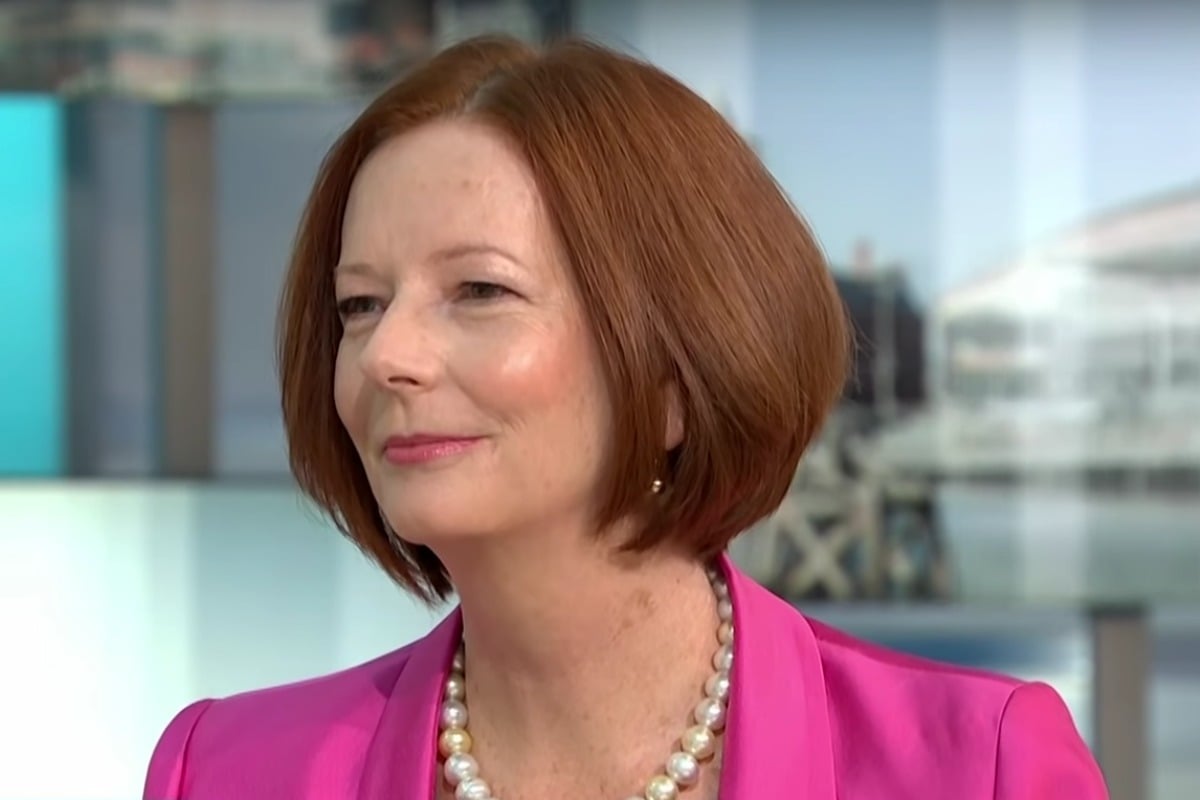
Piers Morgan never thinks twice about sharing his controversial thoughts and opinions.
There was that time he called David Beckham ‘weird’ for kissing his seven-year-old daughter. Or when he thought Daniel Craig was less macho for carrying his newborn daughter in a front baby carrier. And let’s not get started on the Meghan Markle stuff…
Today, he’s branded Australia “the epitome of misogyny and sexism” during an interview with former Prime Minister Julia Gillard.
Gillard and Rose McGowan appeared on Good Morning Britain ahead of International Women’s Day on Friday.
First, Morgan asked if Gillard was Australia’s first female PM.
Yes, she replied, and “to date [the] only female prime minister of Australia.”
“In a country that many people for a long time presumed was the epitome of misogyny and sexism, how did you find leading Australia?” Piers asked, before also asking if she felt the world had made any progress.
Gillard – who held the top job from 2010 from 2013 – began by defending Australia.
“I think that’s a little harsh on my country because there are issues for women in politics right around the world and leading women in all industries, including the creative arts and Hollywood,” she said.
She said that during her leadership, she didn’t enjoy so much airtime being given to irrelevant issues about gender.
“What I was wearing, the fact I don’t have kids, my body shape which got a fair bit of commentary from my earlobes to everything else. A lot, lot more than a man would get.”
She said women in leadership also faced the stereotype of being unlikeable and “hard-boiled”.


Top Comments
Coming from a country that many people for a long time presumed was the epitome of colonialism and elitism, which is where that statement is really coming from, as opposed to stated issues (in which the UK isn't really doing any better than Australia either - look at how poorly their women's sports teams do and their similar under-representation in Parliament)
Calling Piers Morgan a journalist is generous. Professional shit-stirrer is closer to the truth.
Professional Manchild more like it. At least Andrew Bolt and his like try to frame their complaining as being them taking a stand. Piers entire career has been one long toddle temper tantrum masqueraded as being a defender of free speech.
Yeah its a bit like calling Alan Jones a........Hmm I dont know if theres a classification for him
While that's true, that's not really something you can put in a headline: if they'd change it to "interviewer", I'd be happy with that